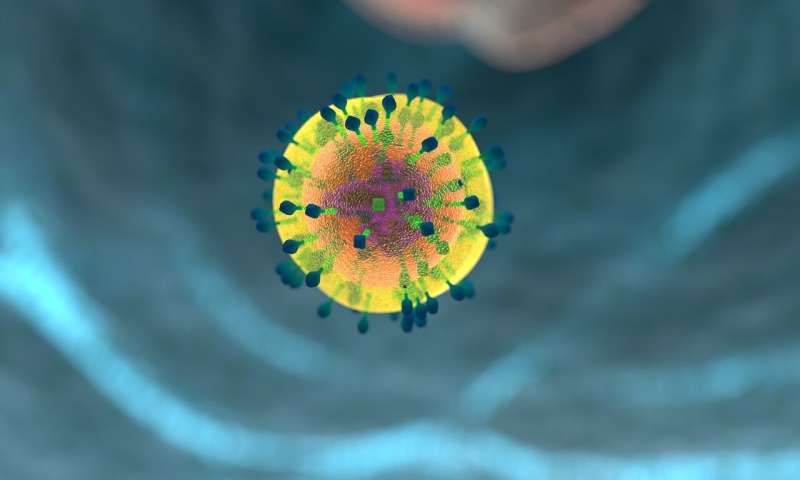CAR T cells target acute myelogenous leukemia, spare bone marrow

Scientists at St. Jude Children's Research Hospital have developed the first GRP78 targeted chimeric antigen receptor (CAR) T cell. Their GRP78 CAR T cell successfully targeted and destroyed acute myelogenous leukemia (AML) cells in the lab. A paper on the work appeared today in Nature Communications.
CAR T cells are genetically modified T cells that enable the immune system to attack a specific target on the surface of cancer cells. They have been successfully used to treat acute lymphoblastic leukemia (ALL), specifically B-ALL. Their use to treat AML has been more limited.
Challenges for CAR T cell therapy for AML include: finding an antigen that is specific to the cancer while limiting toxicities and getting the T cells to persist during and after therapy. An antigen is similar to a tag or target that allows CAR T cells to recognize and attack cancer cells. AML originates from bone marrow cells, so many antigens overlap between the cancer and healthy bone marrow. This has significantly limited the development of CAR T cells against AML.
The researchers overcame these challenges in mouse models of the disease by generating a selective, potent and persistent response against AML using their GRP78 CAR T cells.
"We've shown differential overexpression of GRP78 on the cell surface of adult and pediatric AML, independent of the underlying genetic mutations, and we've shown that it is expressed on the cell surface of blasts [precursors to mature blood cells]," said corresponding author Paulina Velasquez, M.D., St. Jude Department of Bone Marrow Transplantation and Cellular Therapy. "It's not expressed on the cell surface of normal cells, including that of normal hematopoietic cells. This gives our CAR T cells an advantage since they are less likely to have a toxic effect on the bone marrow."
Finding the right target
The researchers identified GRP78 as a candidate AML antigen, which is expressed on the surface of the cancer cells, but not on normal bone marrow. GRP78 is found in the endoplasmic reticulum (ER) of every cell. In normal cells, GRP78 is overexpressed in response to endoplasmic reticulum (ER) stress and cells then either die or recover. In cancer cells, GRP78 is overexpressed and translocated to the cell surface, making it an attractive target for CAR T cell therapy.
"In addition to being cancer-specific, as an essential gene if you knock out GRP78, the cell dies," said first author Nikhil Hebbar, Ph.D., St. Jude Department of Bone Marrow Transplantation and Cellular Therapy. "So, that also makes this an interesting and unique target, because the cancer cells can't get rid of it, lowering the chances of treatment resistance where the cell finds a way to escape the therapy."
Designing the CAR
CAR T cells have an antigen recognition domain, a component that allows the CAR to recognize cancer cells. Most CARs are designed using a single-chain variable fragment as an antigen recognition domain. At St. Jude, the researchers designed their GRP78 CAR T cells using a peptide to recognize the antigen, making it smaller.
To address the issue of T cell persistence, the researchers manufactured their CAR using dasatinib.
Dasatinib is a Food and Drug Administration approved drug that has been recently shown to improve CAR T cell function by "resting" them.
CAR T cell manufacturing is a stressful process for T cells which causes temporary migration of GRP78 to their surface. The researchers found that not only did dasatinib improve T cell function but it also blocked GRP78 from transiently migrating to the surface of the CAR T cells.
By blocking the migration of GRP78 to the cell surface, dasatinib prevents CAR T cells from confusing each other as targets. This improves CAR T cell fitness allowing them to last longer and get rid of cancer cells more efficiently.
The research demonstrates that GRP78 CAR T cell therapy has potent activity against AML in the laboratory. Additional studies are needed before the therapy can be advanced for clinical use.
More information: Nikhil Hebbar et al, CAR T cells redirected to cell surface GRP78 display robust anti-acute myeloid leukemia activity and do not target hematopoietic progenitor cells, Nature Communications (2022). DOI: 10.1038/s41467-022-28243-6




















